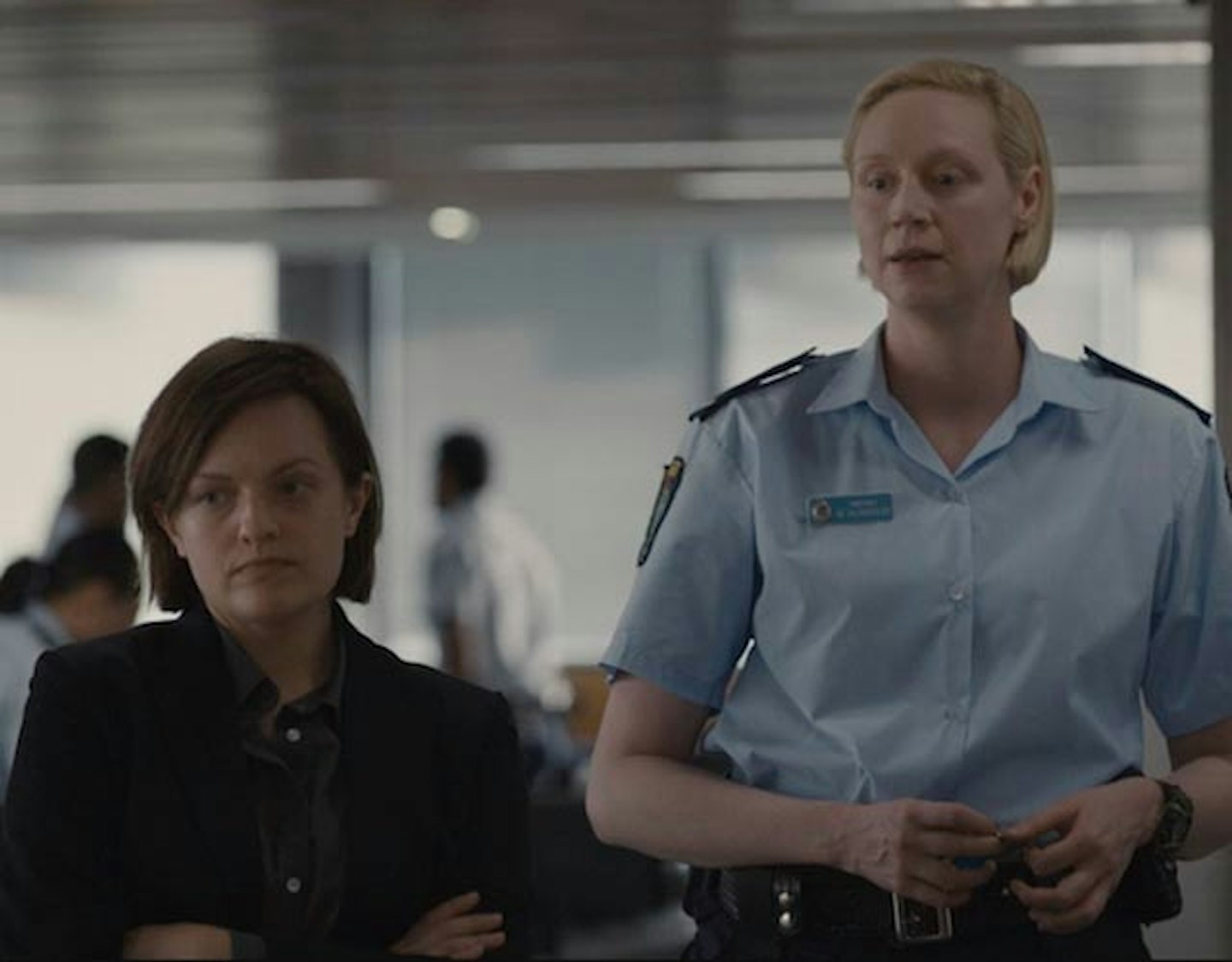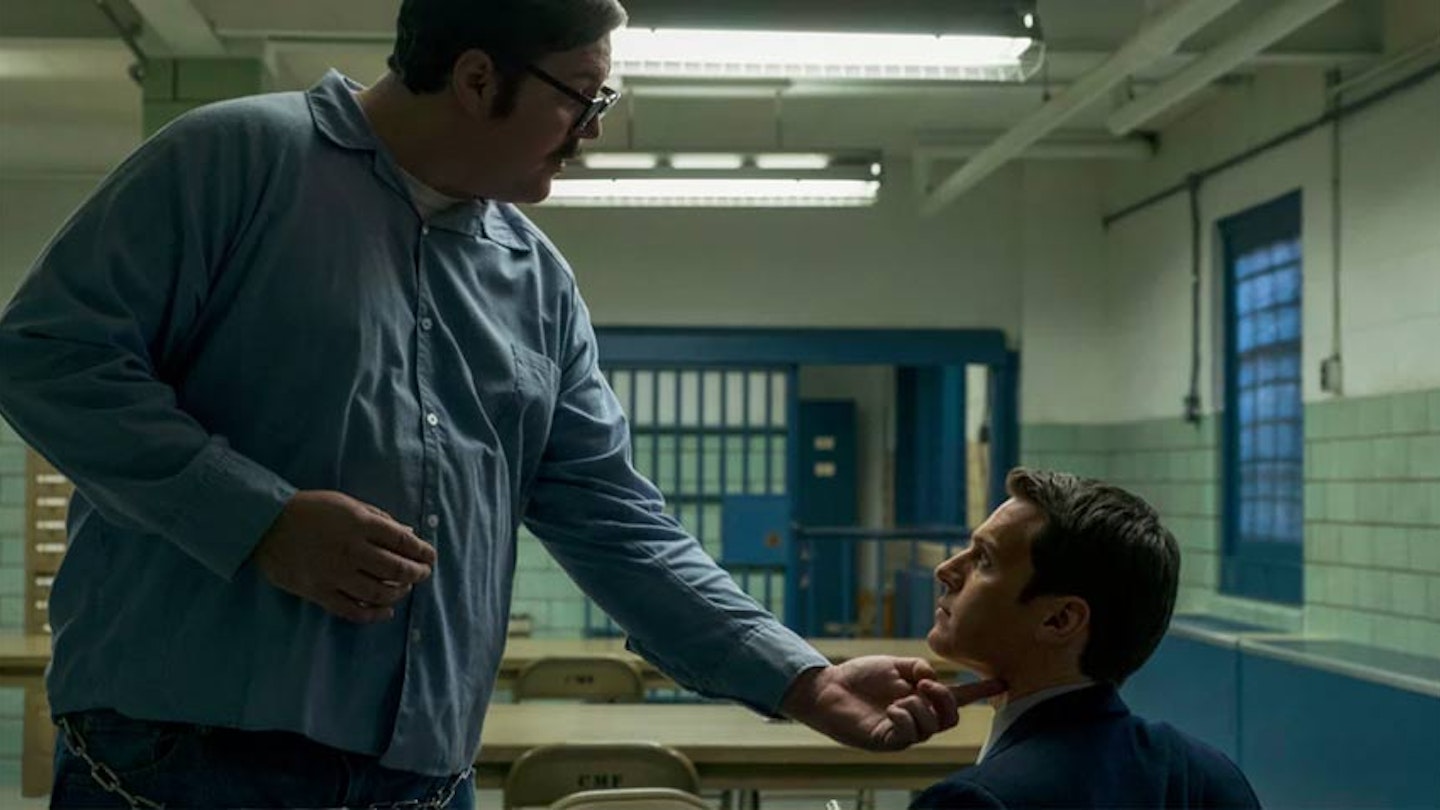This week, Hannibal showrunner Bryan Fuller announced that talks are now beginning with a view to bringing the much lamented show back to TV in some form. It's incredibly early days, of course, but we could yet see Mads Mikkelsen's stylish serial killer back at work, cooking up a storm using meat of dubious origin. Meanwhile on Netflix, David Fincher is soon to unleash Mindhunter, the story of the FBI's first criminal profiling task force. Hannibal had a huge female viewership during its run on TV, and it's a fair bet that Mindhunter will too, because viewing figures and book sales show that women love crime stories, from the most genteel, Sunday night Miss Marple-alike drama to the most shocking and gory productions. Heck, we're still working out way through Top Of The Lake's second season in fascination. But what makes us so keen on all this darkness?
There are lots of cod-psychological explanations why women love crime so much, which ring at least somewhat true. We’re used to a subtle background level of fear in a way that men are not, the fear of walking home alone at night, the fear of being in a small space at the mercy of a physically stronger person. We know there are some men out there who hate us, as a group, just because we exist. Mindhunter, in particular, looks set to delve into that pathology in its interviews with serial killers who kill women. So indulging our fears, in the controlled environment of the living room, can be cathartic, perversely a release of the tension we feel all day. We may have been freaked out by the dark, or picked on at work, but at least we're not running from a killer (mainstream horror films also have an audience that's about 60% female, for much the same reason).
Of course, these shows are not quite representative of a real problem. In real life, most murder victims where there is no obvious killer are men; on these shows, most are women. There's been a historic tendency to lean into the young, white, cis, conventionally attractive female victim, and that says disturbing things about our view of women's role in society and who exactly is valued most. It's true that real crimes involving such victims get more press attention than any others, which is a big problem far beyond TV, but it's encouraging that shows are beginning to push those stereotypes a bit and not just rely on a young, naked female body lying on a slab to make us care. They're beginning to look beyond cliched victims - Hannibal had as many men as women among its victims; Top of the Lake has focuses on non-white figures - and challenge the old, familiar tropes.
And to counter that image of powerlessness and victimhood, we have some of the best female characters ever created solving mysteries, catching the worst of the worst and taking back power. Ever since Helen Mirren played Jane Tennison in Prime Suspect the number of female leads has exploded, leading most recently to Top Of The Lake's Robin and Catherine Cawood from Happy Valley. Unlike Miss Marple, this lot get their hands dirty and feel like genuine, complicated women every bit as interesting as the murderers they're after. It's no coincidence that some of the most prolific and proficient crime authors ever have been women, creators from Daphne du Maurier to Agatha Christie to Ruth Rendell to Gillian Flynn to Happy Valley's Sally Wainwright.

And all the statistics show that these programmes do best with us. 68% of thriller readers are women; 80% of those signing up for thriller writing classes are female. Hannibal, much to the shock of everyone involved, was dismissed as "too gory" by men brought in for its focus groups but embraced for its outrageously staged murders - however bloody - by female viewers. Perhaps it's down to the fact that Fuller brings a gay man's sensibility to the show rather than a prurient eye, or the fact that he believes in diverse casts and genderswapped characters like tabloid journalist Freddie Lowden to bring some women into the picture. Happy Valley won the BAFTA for Best Drama, which is not something that Bergerac ever managed.
There are suggestions that some of the preference we have for these stories is neurological: women like puzzles, the collaborative nature of trying to work with an author or director to get to the solution of the mystery first. In the same way your granny loves to curl up with a book of word searches, we'll watch the latest, glossiest show about a hard-to-catch murderer. All those Agatha Christie mysteries - And Then There Were None at Christmas a couple of years ago; the upcoming Murder On The Orient Express from director Kenneth Branagh and starring everyone from Judi Dench to Johnny Depp - relied heavily on the mystery solving aspect, and it can be immense fun after a lazy Sunday to re-engage your brain with some evening drama.
But that doesn't explain the whole lot. There's no whodunnit aspect to Hannibal; we generally know whodunnit. It's the incredibly manipulative psychologist in the bespoke suit. Same with Happy Valley, and many of the most talked-about crime shows of recent years. There must be something more than just solving the mystery.
Maybe part of it is the fact that we're just more in touch with our own flesh than men are. We're used to being reduced sum of our body, familiar with being poked and prodded and treated as flesh first and person second. Maybe it makes us more sympathetic to murder cases, more in tune with the business of blood and knives and terror. But one thing is for certain: the serial killer drama trend shows no sign of slowing down.
